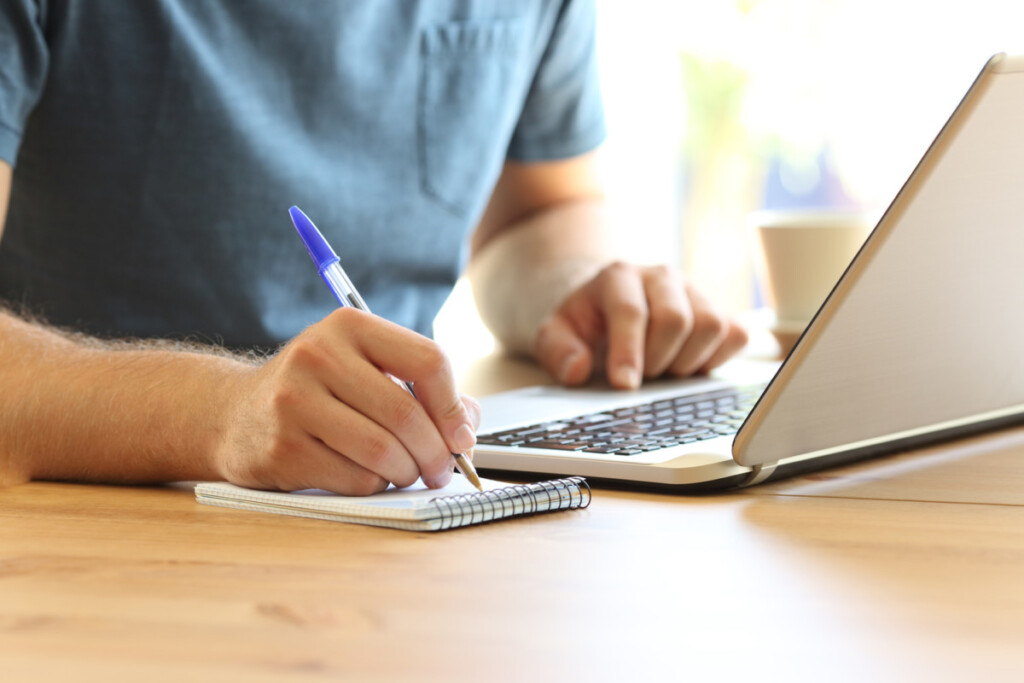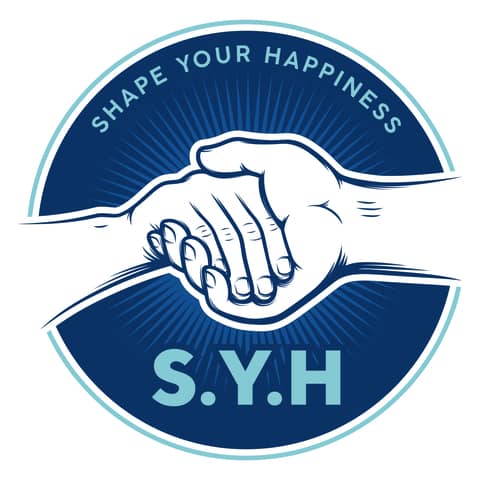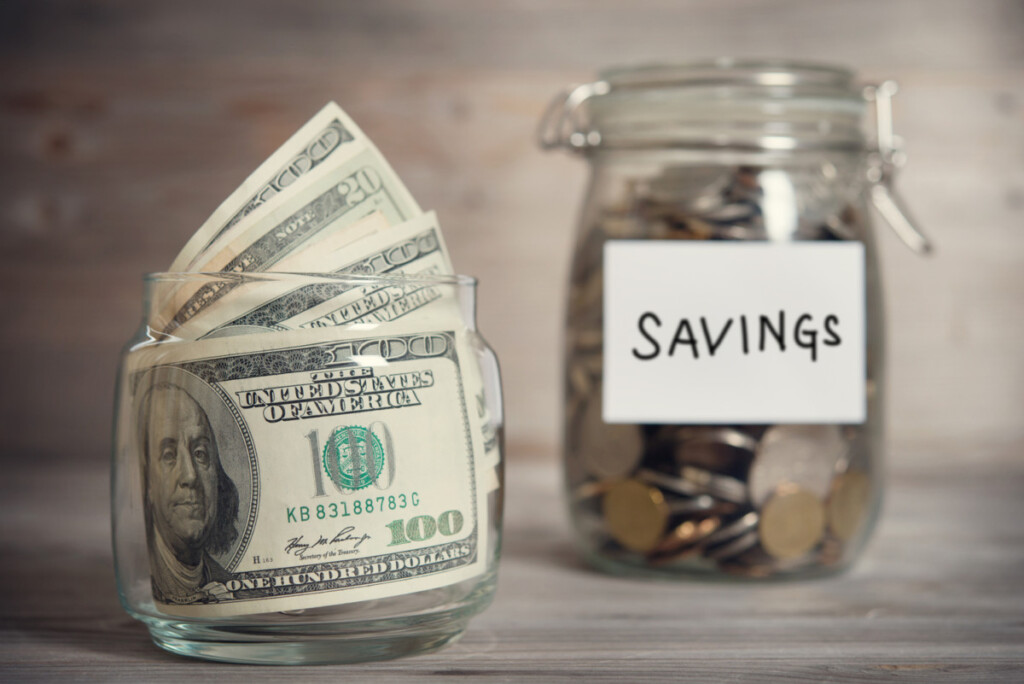You’ve probably heard the expression “pay yourself first” and wondered what it means. After all, how can you pay yourself first, especially if you work for someone else?
So just what does it mean you pay yourself first? Pay yourself first means that you commit to saving a specified amount of your earnings each pay period to build a nest egg for the future.
When you pay yourself first, before you pay any of your living expenses or pay for leisure activities, a percentage of your money is earmarked for a designated investment or retirement fund. This allows you, over time, to build a sizeable nest egg.
One of my favourite books that goes over this principle is covered in The Richest Man in Babylon. Arkad, the richest person in Babylon, covers “7 cures to a lean purse”, in which the first principle is paying yourself first.
This is a great video on youtube which explains how to pay yourself first. If you would rather watch this explanation please check it out! Or carry on with the article.
There are several options available and several things you need to consider before you start paying yourself first, so let’s take a look at what it all means and how it’s done.
Plan What You’re Saving For
Before you begin paying yourself, you’ll want to know what you’re saving for. You can designate money to go into a 401k or other retirement fund, which is good if you work a job with no pension.
Even the young just entering the workforce should begin saving for retirement. It may seem too soon and too far off to worry about, but ask anyone approaching retirement age and you’ll hear them say, “If only I had started saving sooner,” or “I have no idea how I’ll live off of a pittance of Social Security.” Facing retirement with no nest egg is a scary prospect, and now is the time to begin paying yourself first.
Perhaps you have a good pension, and you know you’ll be in good financial shape when you retire, but you want to save for a down payment on a house or ensure you have emergency funds in case you need a major home repair or incur mounting medical bills.
As a teen, you might have had a passbook savings account and saved toward your first car. As a reminder of your goal, and as motivation to save, you taped a picture of the car you wanted to the front of your passbook.
Constant reminders help us to save. It might be hard at 25 to picture yourself at 65, but you need to think about your future. Talk to your parents and grandparents, or anyone over the age of 50 and ask for advice. If you know of a reputable financial planner, talk to them.
You’ll want to have a definite goal to work toward. A retirement plan has tax advantages. With a 401k, you can lower your tax burden now. You won’t need to pay taxes until you withdraw the funds. On the downside, there can be a penalty for early withdrawal. In some instances, you can withdraw, but you must pay back the money within a specified time to avoid a tax penalty.
If you’re saving toward purchasing a new home, you won’t want to wipe out your entire bank account when you do buy a property. You’ll want to keep a buffer just in case you have unexpected expenses.
This can often happen when buying a home. Things that worked when you did the final walkthrough might not work a month or two after moving in. You’ll want to have some backup cash just in case. By all means, avoid using a credit card to pay for expenses. You want to keep debt as low as possible so that you can pay yourself more.
If you’re saving for a new vehicle, weigh your options. Should you buy or lease? New or used? Is car loan interest reasonable or should you pay cash? If you pay outright, is the dealer giving you enough of a discount to let go of your money?
There are many questions you need to answer before you set up an account to pay yourself first.
Just remember, whatever you plan for, once you commit to it, you need to stick with it.
How Does It Work?
Paying yourself first is easy to do if your employer makes a regular deduction from your pay into your designated investment or savings account.
With an automatic deduction, you don’t have the temptation of foregoing a week so that you have the extra money to splurge.
Because of the paperwork and time involved, you can’t easily switch between saving and not saving.
If you aren’t on an automatic deduction plan, then you’ll need a lot of discipline to make the deposits yourself. It can be too easy to skip a week, and you’ll never run out of excuses as to why you can’t make it to the bank. Here are a few you might be tempted to use:
- Not enough time to get to the bank
- Bad weather
- Need to rush home
- Meeting friends after work
- Need the money for car repairs
- The kids need money for school
- Too tired to stop anywhere
- Late for a meeting
- Late for parent/teacher meeting
This list can be endless. If there’s a will, there’s a way to avoid paying yourself first. That’s why discipline is so important.
When you were a child, perhaps you had a school savings account. You’d go to school on a designated day with your dollar or two, and give it to the teacher, who would then have it deposited into your bank account.
If you decided to buy ice cream at lunch instead of depositing your money, you would have instant and short-lived gratification and most likely would get into trouble when your parents got the bank statement in the mail.
This is an analogy of how self-discipline works. You don’t want to spend unnecessarily and later regret it.
Discretionary spending is the cause of debt for many people. Look around you right now. What do you see? How many nonessential things are you surrounded by? Do you really need a $100 X-ACTO high volume electric pencil sharpener or can you make do with a $5 hand-crank? Unless you’re a pencil artist and need to sharpen often and quickly, or a draftsman, do you really need such an elaborate pencil sharpener?
Paying yourself works by discipline and good decision-making, especially if you’re depending on yourself to make the payments.
Fortunately, those who have employer deductions won’t face the temptation of skipping from time to time, but they still need to watch what they spend and how they spend it.
It’s a good time to reevaluate your finances.
Plan for an Emergency
Research on savings indicates that a relatively small percentage of Americans follow the “pay yourself first” adage. As of 2016, fewer than a quarter of Americans had enough savings to cover six months’ worth of expenses, and as of 2017, an estimated 39% of Americans had no savings at all, and 57% had less than $1,000 in an emergency fund. In 2018, 23% of Americans had nothing saved for an emergency.
Today’s world offers no job security unless you’re in the business of food or trash removal. People will always need to eat, and there will always be trash. But if you’re in any other job, there’s always a chance that you could get laid off. Nothing lasts forever, as the saying goes. Also, you’ve probably heard a supervisor say that everyone’s replaceable.
You might work for a corporate giant and think you’ve got job security, but you need to take into consideration that even large corporations have experienced downtimes and layoffs. Are you prepared to meet expenses if you lose your job tomorrow? How many employees of Sears or Friendly’s thought they had secure employment?
When companies close abruptly, it can really leave you in a bind. Imagine walking into work one day and being told to turn around and go home because the place is closing for good, or worse, arriving at work to find the doors locked and a sign that says, “Out of business.”
Yes, it can and does happen, and you should be prepared in case it happens to you. Never say never, and never think anything is forever.
What would you do if you were to find yourself in that situation? Could you survive on unemployment benefits alone? Would you wipe out your savings within the first month?
By paying yourself first, you can save enough to live off of your savings for six months or longer. Build a nest egg that you can count on in times of emergencies. There’s nothing worse than going from a financially stable individual to a starving, barely-able-to-make-ends-meet unemployed person.
Don’t Over-Save
When you pay yourself first, you want to make certain that you aren’t over-saving. You need to pay your living expenses, and you’ll want to pay down or pay off any credit card balances you might carry.
Nerd Wallet suggests that you save a realistic amount using the 50/30/20 approach. This method allocates 20% of your monthly income to savings and debt repayment, 50% to necessities, and 30% to wants.
Say, for instance, you earn $4,000 per month. You’d earmark $2,000 for necessities, $1,200 for wants, and $800 for savings and debt repayment.
It is a lot easier to save when you don’t carry a lot of debt, so be sure to pay down the credit cards that you have or pay them off if possible. This will give you more available cash for saving.
The important thing to remember is that you don’t want to pay yourself first and sell yourself short. You want to maintain a good credit rating, so if you do need to borrow for an emergency or purchase a new vehicle, you can get a loan with a low-interest rate.
Make sure you do the math, and begin by saving only what you can afford to save. You can begin with a conservative figure and increase it as time and finances allow. If 20% is too much to start with, bump down to 10% or whatever your budget can afford.
Out of Sight, Out of Mind
Financial experts suggest that the best way to save is to keep your pay-yourself-first bank account in a separate bank than your checking account or mortgage. That way, when you go to your usual bank to pay your mortgage or to deposit or withdraw from your checking account, you won’t be tempted to withdraw from your savings account.
Again, saving is about discipline and managing your discretionary funds so that you aren’t blowing money on things you don’t need.
How many times have you walked into a Walmart for one thing and walked out with a cart filled with things you don’t need?
You should make a list of all the things you spend money on that you don’t need. You might be surprised by how quickly your money leaves your hand. Eating out is an expense that will drain your wallet without realizing it. Think about how much you spend on fast food and fancy restaurants. How many times do you and your coworkers order out for lunch?
How often do you go out to the movies or to a nightclub, and how much do you spend when you do? These are activities that can quickly add up. Of course, you need to socialize and entertain yourself, but when you go to the movies, do you really need that $7 tub of popcorn or that $5 soda?
Eat at home before the movie, and walk right past the concession counter. That will save you money that can be put toward your savings.
Think about each expenditure before you pull out your wallet. Watch what goes into your shopping cart.
This is one of the bad habits that paying yourself first hopes to break you of – discretionary spending.
Learn More
There are many resources online and offline that can help you to learn more about the pay-yourself-first theory.

West Virginia offers an instructor guide for teaching young adults, as does Pathways in Schools. These programs teach the importance of saving to young students so that they can be better prepared in life.
Many high schools offer courses that are similar in nature. They teach students how to be better managers of their money when they enter the workforce.
Students learn how to balance a checkbook, read a pay stub, and budget so that they can become savers and pay themselves first.
Adults can take college courses that teach the theory, and community organizations often offer programs free of charge. If none are available in your area, you can go to any local bank and inquire as to the best means of saving. You might want a regular account or a certificate of deposit.
As noted, financial advisors discourage using a checking account for your pay-yourself-first account, and they discourage opening a savings account in the same bank that you do your checking or other banking.
Remember, you don’t want to put your money where you can easily access it. And, please, don’t get a debit card linked to your savings account. Those ATM drive-thrus for $20 here and $40 there can quickly deplete your savings.
Even if you receive a card without requesting one, tuck it away in a safe place and don’t carry it with you. As long as you don’t have it in your possession, you won’t use it. And unless you feel secure having it in the event of an emergency, you can cut it up and toss it away.
Now that you have the information, you need to pay yourself first. Why not start securing your tomorrow today?
Questions
What If My Paycheck Isn’t Consistent?
It can be hard to save when your paycheck fluctuates from week to week. If that is the case, then you’ll want to pay yourself first on the conservative side so that you don’t leave yourself short for paying your living expenses. You can start with a low amount, for example, 5% of your gross income. This should leave you plenty of buffer for paying for necessities.
The important thing is that you don’t skip a pay period. Once you skip one, you’re more likely to skip more than one, and that defeats the purpose of paying yourself first.
I’m self-employed and never know how much I’ll earn. How can I pay myself first if I’m unsure of my revenue stream?
Being self-employed will certainly require more discipline; however, you can put some money aside in a savings account. You can try to set a budget based on your average monthly revenue.
If you’re paying yourself a salary, of course, it will be much easier than if you don’t. Those who don’t pay themselves a salary will need to be more disciplined and perhaps trim expenses that are necessities. For instance, if you’re eating out twice a week, cut down to once a week and use what you would have spent on the second dinner to pay yourself. You can also save more when revenue is good, and save less when it’s not as good. When self-employed, it might be harder to save a specified amount each month, so you want to be flexible.

